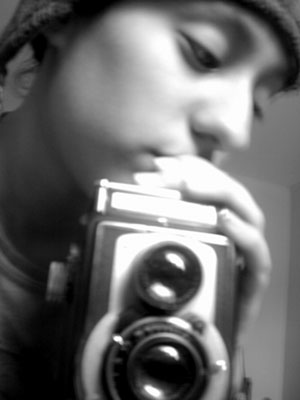All Nonfiction
- Bullying
- Books
- Academic
- Author Interviews
- Celebrity interviews
- College Articles
- College Essays
- Educator of the Year
- Heroes
- Interviews
- Memoir
- Personal Experience
- Sports
- Travel & Culture
All Opinions
- Bullying
- Current Events / Politics
- Discrimination
- Drugs / Alcohol / Smoking
- Entertainment / Celebrities
- Environment
- Love / Relationships
- Movies / Music / TV
- Pop Culture / Trends
- School / College
- Social Issues / Civics
- Spirituality / Religion
- Sports / Hobbies
All Hot Topics
- Bullying
- Community Service
- Environment
- Health
- Letters to the Editor
- Pride & Prejudice
- What Matters
- Back
Summer Guide
- Program Links
- Program Reviews
- Back
College Guide
- College Links
- College Reviews
- College Essays
- College Articles
- Back
Pure Heroine (Extended) by Lorde
The Lorde is upon us. New Zealand artist Ella Yelich-O’Connor, the woman behind the royal moniker, debuted her first full-length album in 2013. Just 17 when the album was released, Lorde is a fresh teen voice with a whirlwind of a vision. Her voice, deep and throaty, leads an entourage of songs that can be vulnerable, bracing, or disillusioned, or all at once. She doesn’t have the washed out white noise sound often associated with pop. Instead, her voice is specifically channeled, precise and controlled, paving the way for sensational music.
Naming herself Lorde was the first step. By naming the album Pure Heroine, she is our instant muse, our model and player in the game. The first track on the album, “Tennis Court,” opens with an eerily electronic chink, chink, chink that keeps on hitting. It represents the restlessness, the boredom sitting in the hearts of teens, who have nothing and everything to do. We’ve entered an arena of immense cool--of tennis, the sport of the elites. There’s so many interweaving messages, as you peel away smoothly rhyming stanzas. Lorde understands the strange chaos of being a teenager, a time where you’re still ruled by childish, raw emotions and expected to act like an adult. And this song is a invitation to hang with the cool kids, in a world of luxe, unblinking faces. Lorde gets the hierarchy of high school, in a way that’s more instinctual than rom-com, making multiple references to royalty. She’s the queen, and you’re in her court.
The next song suggests an alternative dynasty. “Royals” is so simple, clean and removed, fresh and sharp while subverting the genre. It’s a foray into the sweet, smothering pressure to be cool, though the end it crowns the underdogs, who come to party in peace. The hit 2013 single is catchy and cohesive, but also incisive and intelligent. That’s where the magic happens, where the beat meets substance, and magic coats the whole album. “Buzzcut Season” has that same striking noise in the background, capturing how it feels to be numb with emotion. Lorde writes the teenage dream in a way that will suck the breath out of your lungs, molecule by molecule. Few songs are even about love. The album takes the world by storm by mesmerizing our ears and our hearts.
“Glory and Gore” awards the dangerous power of the media, as teens begin to idolize the violent and beautiful. Dangerous, climactic, calculating, her heavy, prowling voice is coming for blood. You lose yourself in the ring, in lyrics so cryptic they begin to make sense. “No one round here’s good at keeping their eyes closed,” she sings over a barren gridge, as that horrible hitting sound hits something hard. “White Teeth Teens” is one of my personal favorites, crafting a shrine for those cool kids, in all their lush exclusivity. They’re without a grill, Colgate clean. “A World Alone” is the last song on the original version, but only the tenth track on the extended album. Like that feeling in your chest, it’s soothing and expanding, about being alone with someone in a room full of people. It takes the feeling of being both talked about and ignored. The fashionable chatter of the crowd hangs in the back, threatening to spill over the music, until it does.
The last five songs are from her earlier EP, The Love Club. “Million Dollar Bills” takes a different turn, a fun, smacking song that glamorizes the green-paper-hungry to the point it becomes satirical. “Biting Down” really does feel like you’re sitting at the bottom of a swimming pool, or a frozen mosh pit: lyrics of the song repeat bouncing off imaginary walls, and Lorde’s own voice multiplies into a choir, until it feels like you’re in your own pounding head, enduring whatever is causing you to “bite down” through the pain. That drumming sound is the rugged, numbing medicine. Lorde’s music is never terribly specific, but somehow feels tailored to your thoughts. The last episode, the rolling finale, “Swinging Party,” is serene and sad. It has the twinkling sound of a snow globe, as the world falls to merry ashes. Being wrong, being afraid are a “crime,” suggesting in the end, even the ruling Lorde is condemned by the masses. She sings of a “swinging party” in jail, but there’s also a grayer, more vague destination suggested, a world where the dancing never ends. And so our heroine passes on.

Similar Articles
JOIN THE DISCUSSION
This article has 0 comments.

What does "THHRe" stand for? It's THE HOLY HITCHHIKE’S REVIEW...A shorter version of the Hitchhike, reviews principally concerning books, movies, and music. Enjoy, and let loose your commentary and suggestions below. A new column of THH every Friday!